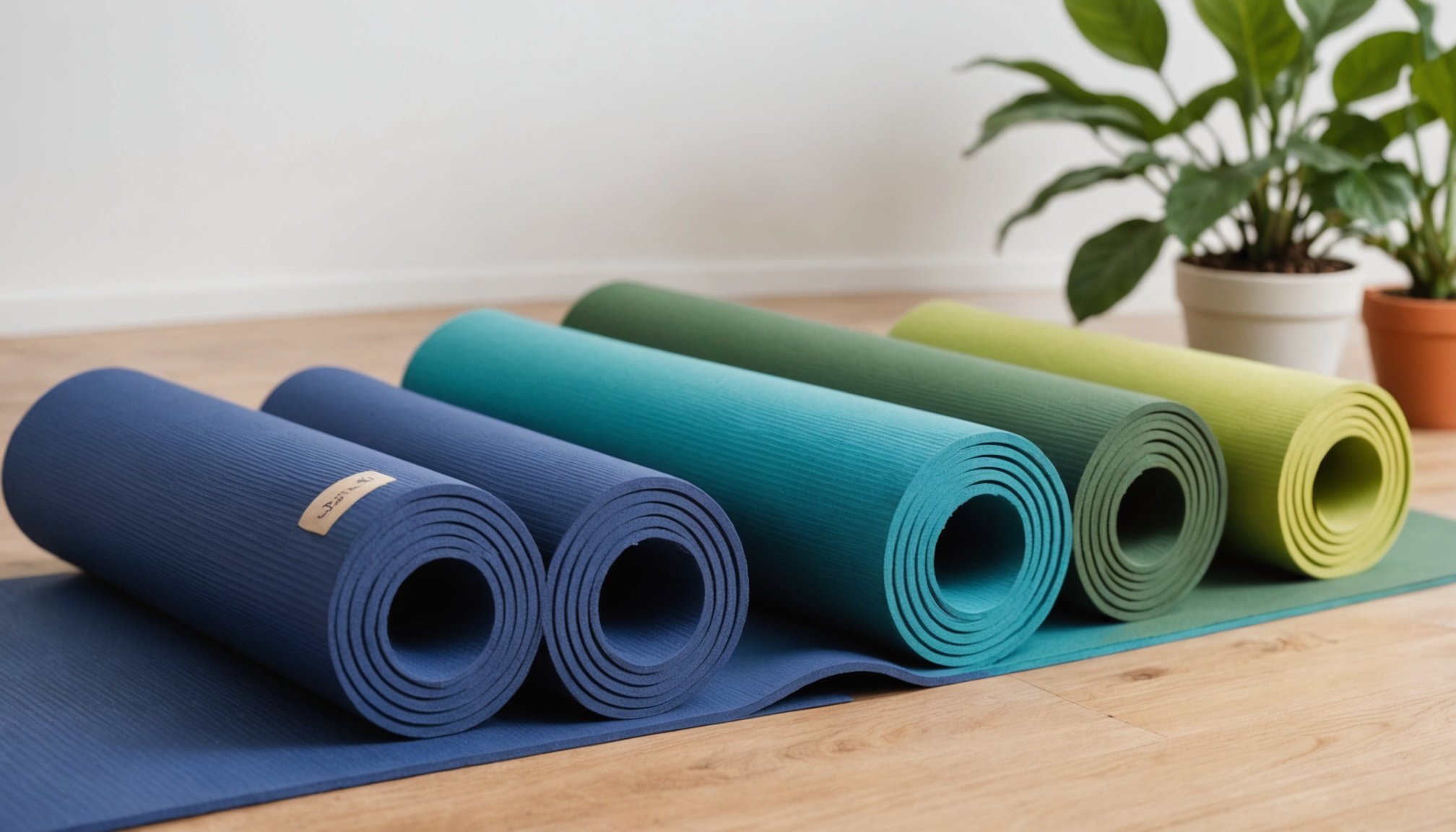Overview of Sustainable Yoga Mats
With increasing emphasis on sustainability, many are opting for sustainable yoga mats in their journey towards a green yoga practice. These eco-friendly yoga mats are crafted from materials that are less harmful to the environment, offering both ecological benefits and contributing to the health of practitioners.
Importance of Sustainability in Yoga Practices
Embracing sustainable yoga mats is vital in reducing environmental impact. Conventional mats often contain non-biodegradable components which can pose ecological threats. Choosing mats made from natural rubber, jute, or cork not only supports a green yoga practice but also aligns with the holistic principles of yoga itself.
Additional reading : Ultimate guide to eco-friendly activewear brands in the uk for the mindful fitness lover
Eco-Friendly Materials Used in Yoga Mats
Eco-friendly yoga mats often utilise innovative materials. Natural rubber is a popular choice due to its biodegradable properties. Meanwhile, cork and jute are celebrated for their renewable nature. These materials offer superior grip and durability, ensuring a stable practice without compromising environmental values.
Benefits of Choosing Sustainable Options
Investing in sustainable yoga mats enhances both personal health and the planet’s well-being. Eco-friendly options typically contain fewer toxic chemicals, reducing exposure to potentially harmful substances. Moreover, supporting these eco-conscious products encourages a broader shift towards sustainability in broader consumer markets.
In parallel : Explore montreal's jewelers: where timeless elegance is crafted
Top Sustainable Yoga Mat Brands in the UK
Choosing the best sustainable yoga mat brands can make a significant difference in your commitment to eco-friendly living. Here, we explore some of the leading options available for UK yoga mats.
Brand A: Features and Eco-Friendly Practices
Brand A stands out with its dedication to sustainability, utilising materials such as natural rubber and cork, which are both renewable and biodegradable. The pricing, though slightly above average, reflects its high-quality construction and durability, offering great long-term value for consumers. Customers frequently praise the comfort and grip of Brand A yoga mats, highlighting a consistent experience in a green yoga practice. Feedback often notes their commitment to reducing plastic waste, making it a favourite among eco-conscious buyers.
Brand B: Features and Eco-Friendly Practices
Brand B takes eco-consciousness further by employing recycled materials, particularly in its packaging. These mats provide exceptional traction, important for both beginners and advanced practitioners. Affordably priced, they offer excellent balance between cost and environmental responsibility. Reviews mention a slight odour initially, yet appreciate the quick dissipation and the mat’s enduring performance. Users commend Brand B’s transparency in material sourcing and their alignment with sustainability goals.
Brand C: Features and Eco-Friendly Practices
Brand C is a rising star among the best sustainable yoga mat brands in the UK, providing solid competition within the eco-conscious market. This brand utilises unique materials such as hemp fibers combined with natural rubber, contributing to both durability and a reduced environmental footprint. This choice reflects Brand C’s commitment to producing yoga mats that align with sustainability goals while also offering exceptional performance.
The pricing strategy of Brand C is notably attractive, as it aims to deliver value without compromising quality. Positioned at a mid-range price, these UK yoga mats offer an appealing option for those seeking affordability combined with a commitment to sustainability. Customers appreciate the balance of cost-efficiency and eco-friendly materials, making Brand C a popular choice for various practitioners.
Feedback about Brand C consistently highlights its excellent grip and cushioning, enhancing the overall yoga experience. Additionally, consumers frequently commend the brand’s transparent approach to both eco-conscious practices and ethical sourcing of materials. This commitment to transparency and sustainable production extends beyond their products, contributing to their growing reputation in the yoga community.
Comparative Analysis of Selected Brands
Exploring a yoga mat comparison of leading brands offers valuable insights into their eco-conscious offerings. Brand A distinguishes itself with its use of materials like natural rubber and cork, emphasising sustainability without compromising comfort and grip, albeit at a premium price. In contrast, Brand B utilises recycled materials, positioning itself as an affordable option that balances cost with eco-consciousness, although it may initially have an odour challenge.
Brand C’s approach, incorporating hemp fibres and natural rubber, demonstrates a solid commitment to durability and a reduced environmental footprint. As for pricing, Brand C offers a consistent middle ground between the high-end assurance of Brand A and the budget-friendly appeal of Brand B, making it accessible to a broader audience.
In making a choice, users seeking premium quality and comfort might lean towards Brand A, while those prioritising affordability and recycled materials likely favour Brand B. Brand C stands as a versatile option, appealing to individuals who value midpoint pricing and extensive use of sustainable materials. This brand analysis empowers consumers to choose according to personal preferences and ecological considerations.
Brand Certifications and Values
Navigating the landscape of sustainable yoga mats often involves understanding the variety of certifications that can guarantee their eco-friendly credentials. Certifications serve as essential markers of quality and sustainability, ensuring that eco-conscious brands adhere to stringent eco-friendly standards. Among the most recognised certifications is the Global Organic Textile Standard (GOTS), which ensures that textiles, such as yoga mats, meet certain ecological and social criteria.
In addition to certifications, brands often highlight their values and commitments to the environment. These values guide production processes, material sourcing, and overall business practices, aligning with the green yoga practice ethos. Brands with robust eco-friendly standards demonstrate their dedication through transparent manufacturing processes and ethical labour practices.
Popular UK yoga mat brands may carry labels such as OEKO-TEX® Standard 100, certifying that mats are free from harmful substances, thus safer for both the user and the planet. Many consumers find assurance in these certifications, supporting brands that reflect their personal commitment to environmental stewardship. By examining these certifications and brand values, practitioners can make informed decisions that resonate with their eco-conscious lifestyle choices.











